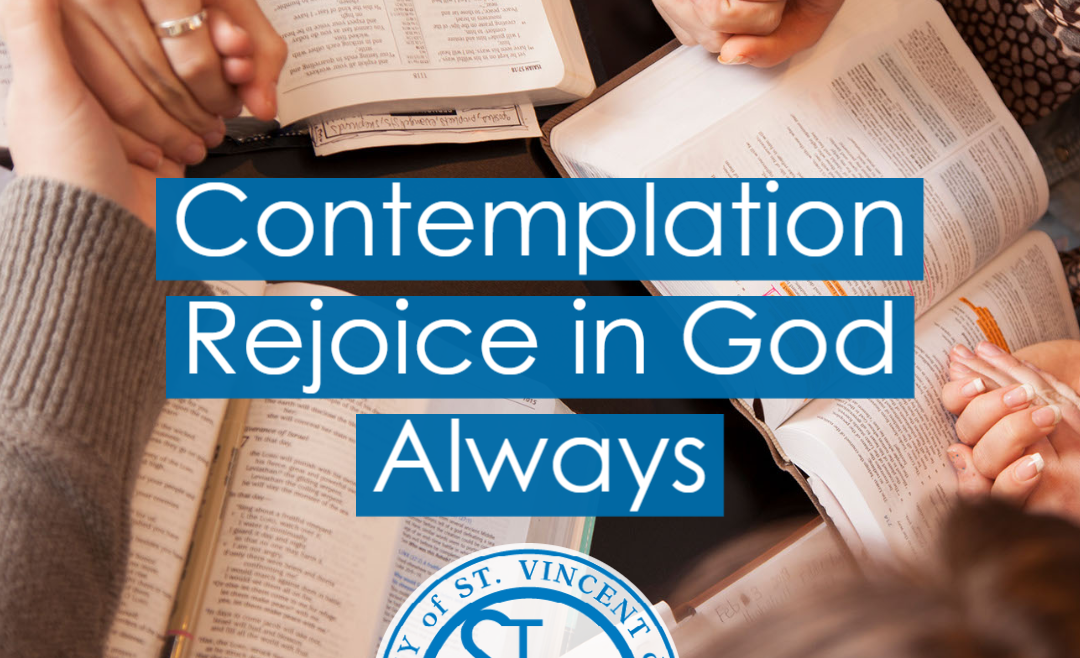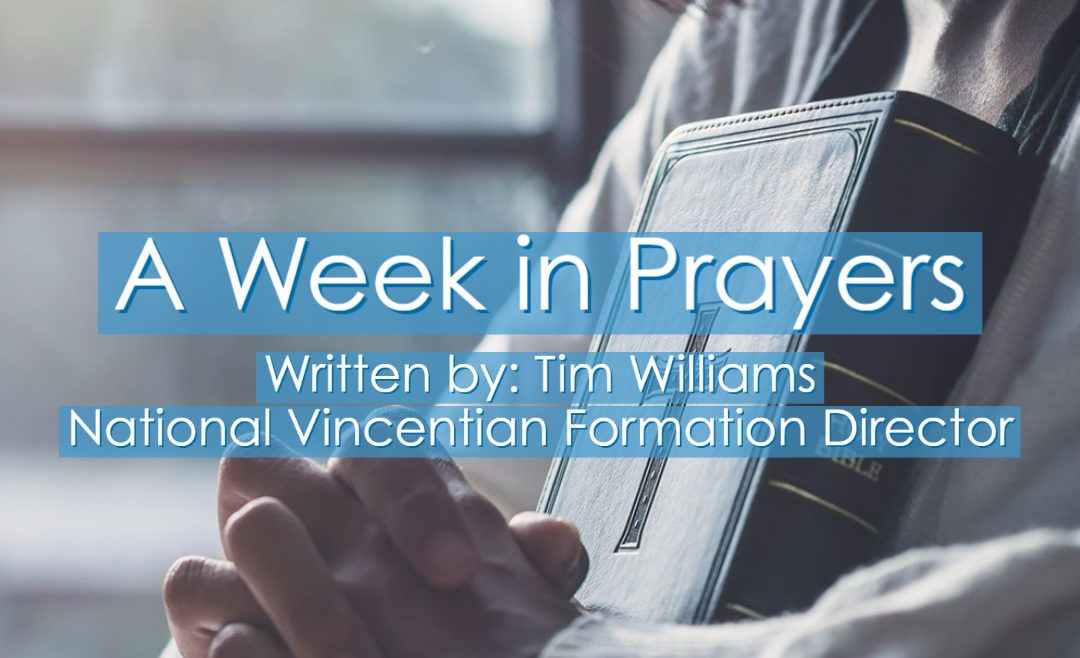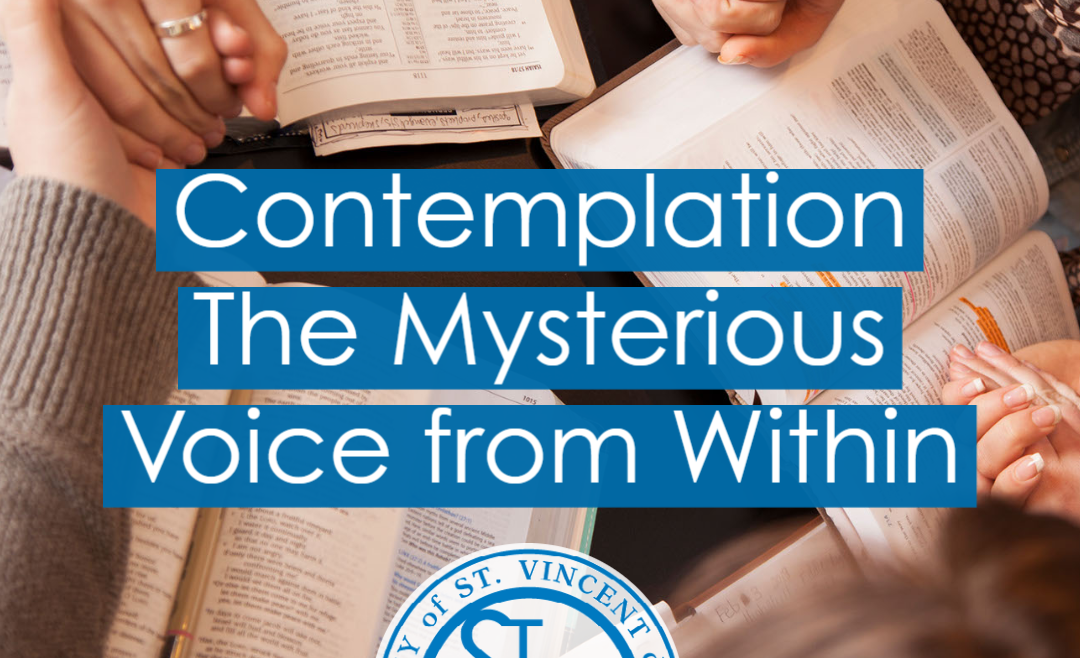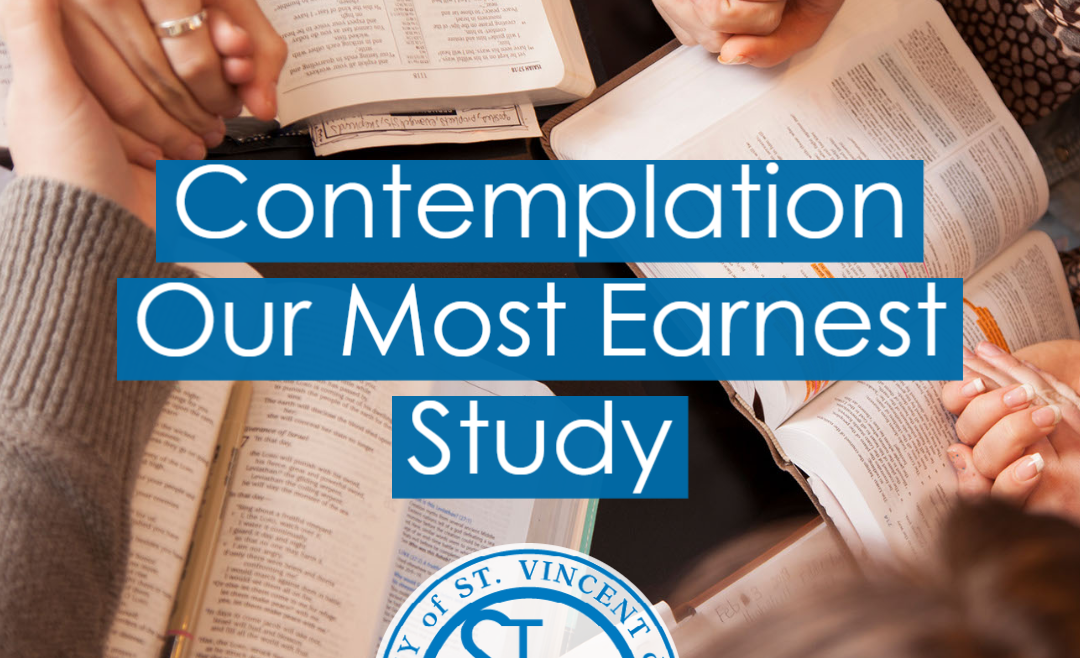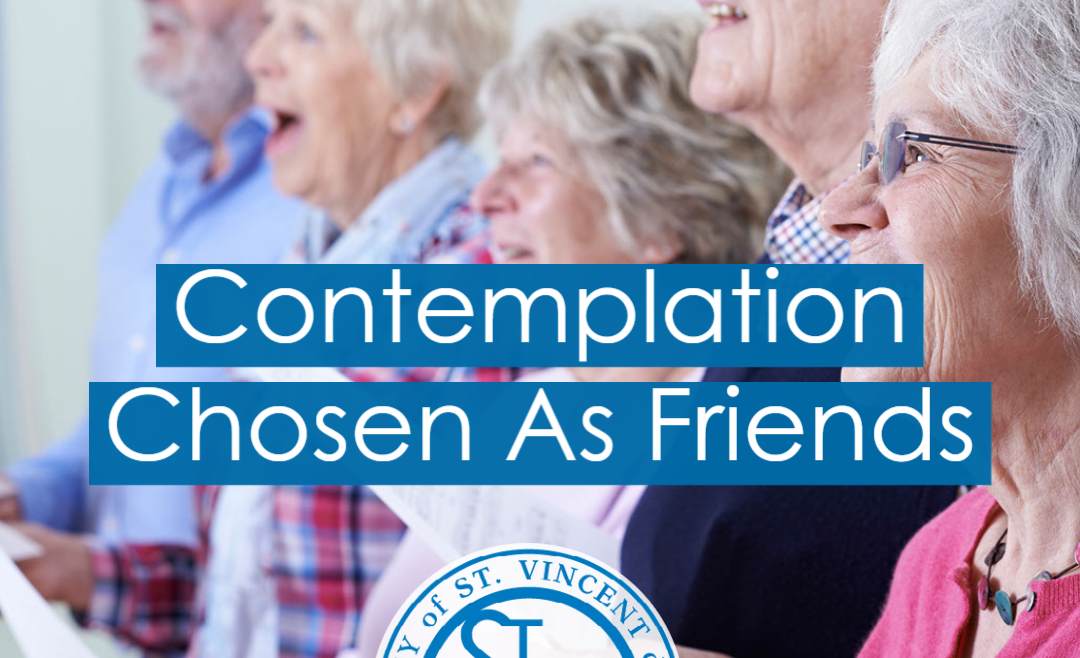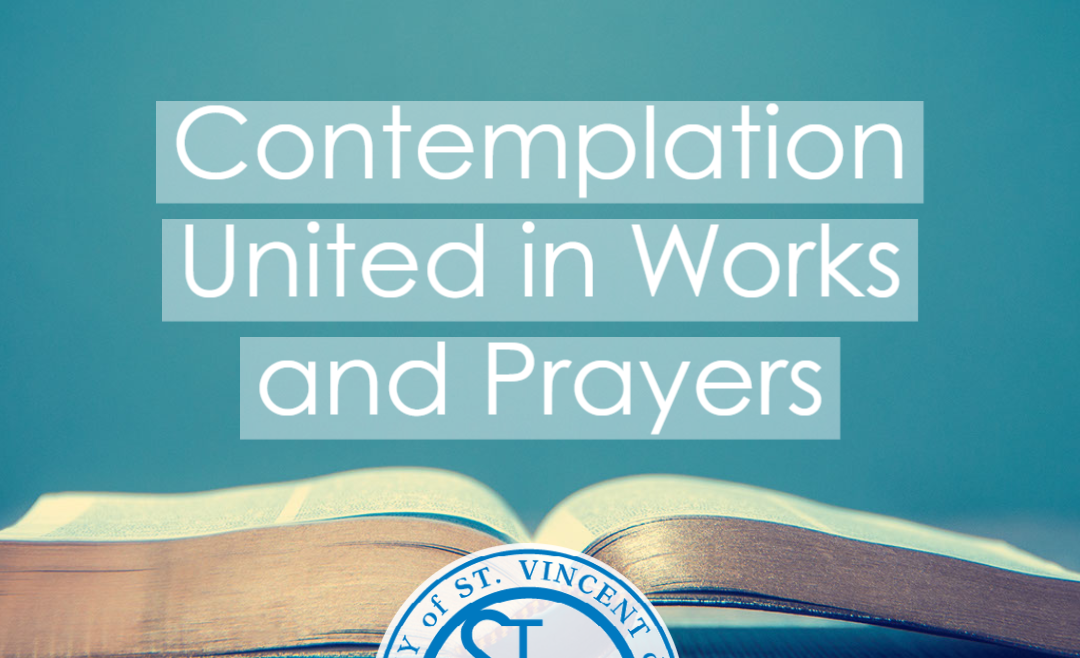In our works of charity, we come to know many neighbors whose circumstances seem so overwhelming that they begin to overwhelm us, too. It weighs on us, and we begin to suffer from what some call “compassion fatigue,” a sort of despair that perhaps what we do is simply not enough.
Our Rule reminds us that “in the poor [we] see the suffering Christ.” [Rule, Part I, 1.8] If we stop right there, it’s no wonder we despair. Yet every week at Mass, as we ponder the crucified Christ, there above the altar, we find peace in the reassurance of His great promise. On the cross, Jesus suffered unimaginably. Our very word in the English language for unbearable pain – excruciating – comes from the Latin ex cruce meaning “from the cross.” Yet to meditate upon that image brings us not sadness but joy; not despair, but hope.
That is because the faithful see the cross with hope-tainted eyes. We know Christ’s story does not end on that cross, and because of that, neither does ours. The cross is suffering, yes, but it is also redemption, it is also glory, it is also hope.
So, as we are called to see the suffering Christ in the neighbor, we also are called to see Him with the same hope-tainted eyes with which we gaze upon the crucifix. Both the neighbor’s troubles and our own will surely pass, and there is never a time that we should not, as Blessed Frédéric’s father advised him during a time of great sadness, “Gaudete in Domino semper.” (Rejoice in God always.) [Letter 160, to Laller, 1837]
To be sure, it is important to share the tears of the neighbor, but not without also sharing the hope of Christ. We can express our sympathy in no more sincere way than to share a tear, to bear with us part of the sadness, stress, or sometimes even anger that the neighbor may be feeling. This is, as St. Vincent once explained, “an act of love.” [CCD XII:221]
But to share only the despair is not our calling. “Help honors,” Blessed Frédéric wrote, “when it may become mutual.” [O’Meara, 229]
Vincentians serve in hope. Not merely the hope of paying a bill, because there always will be another bill. We serve in the eternal hope, “the great hope that cannot be destroyed,” and we “can always continue to hope, even if … there seems to be nothing left to hope for.” [Spe salvi, 35]
In suffering there is redemption, in the neighbor there is God, and in hope there is joy enough to share.
Contemplate
Why do I find it difficult to “rejoice in God always”?

